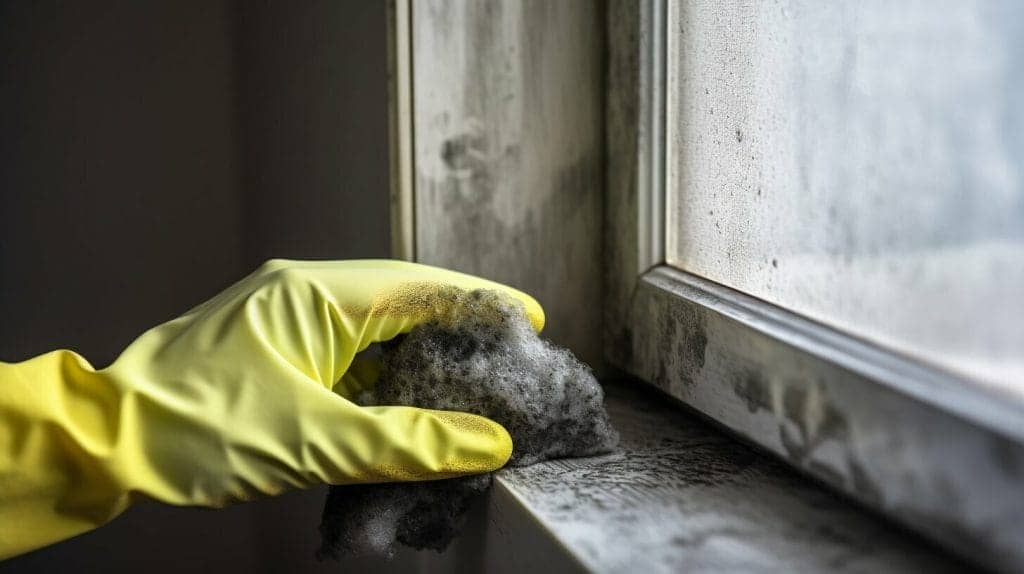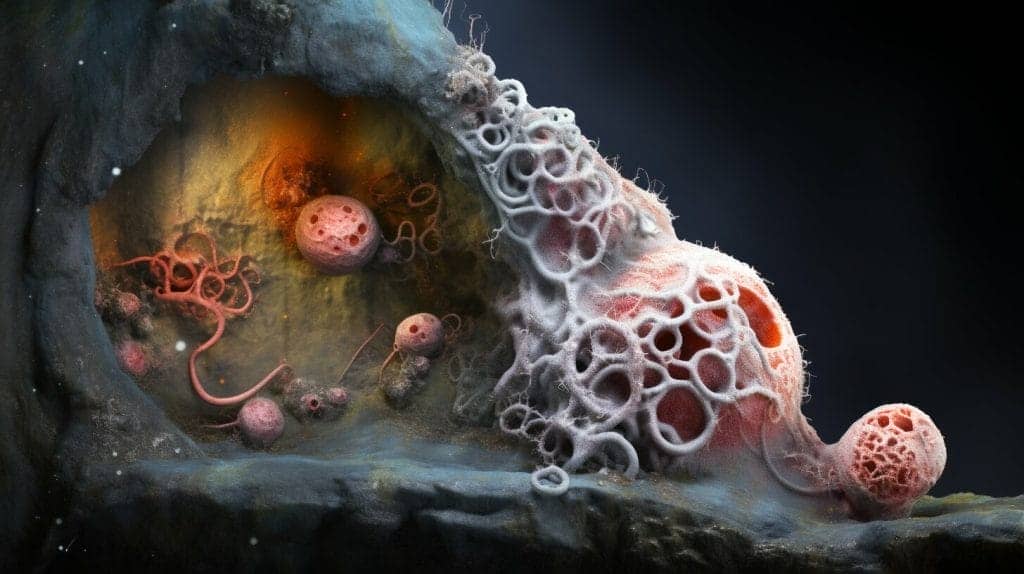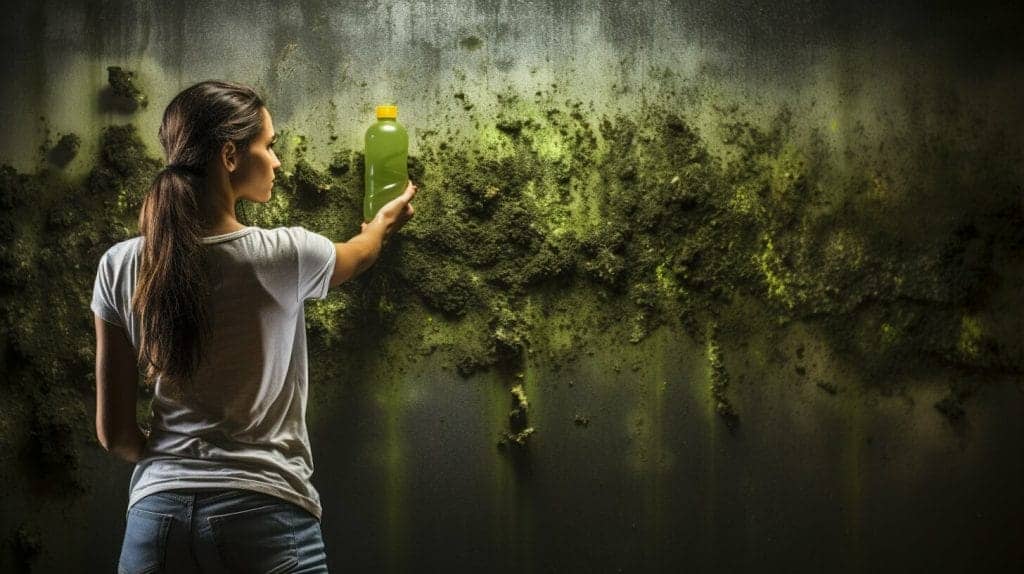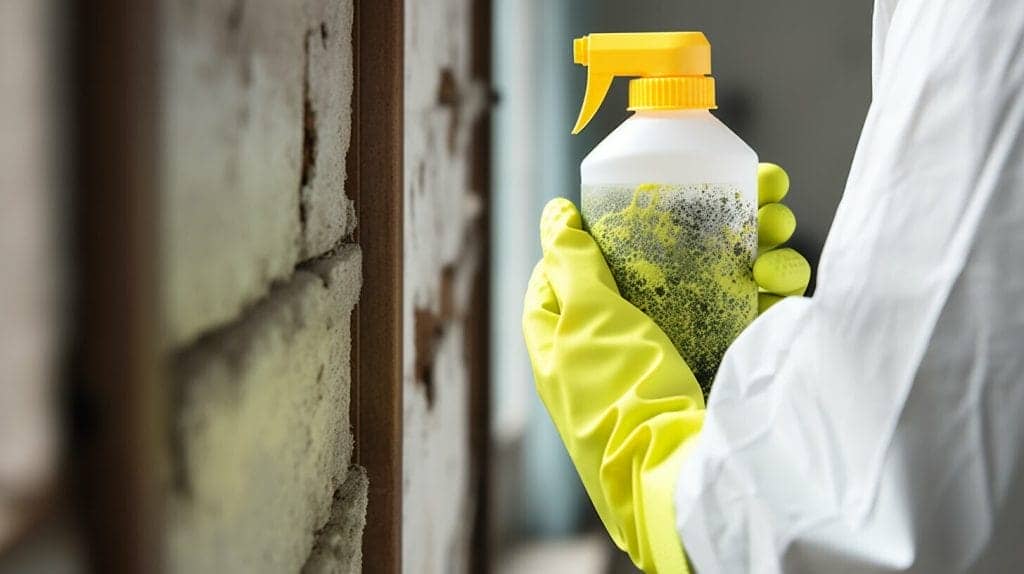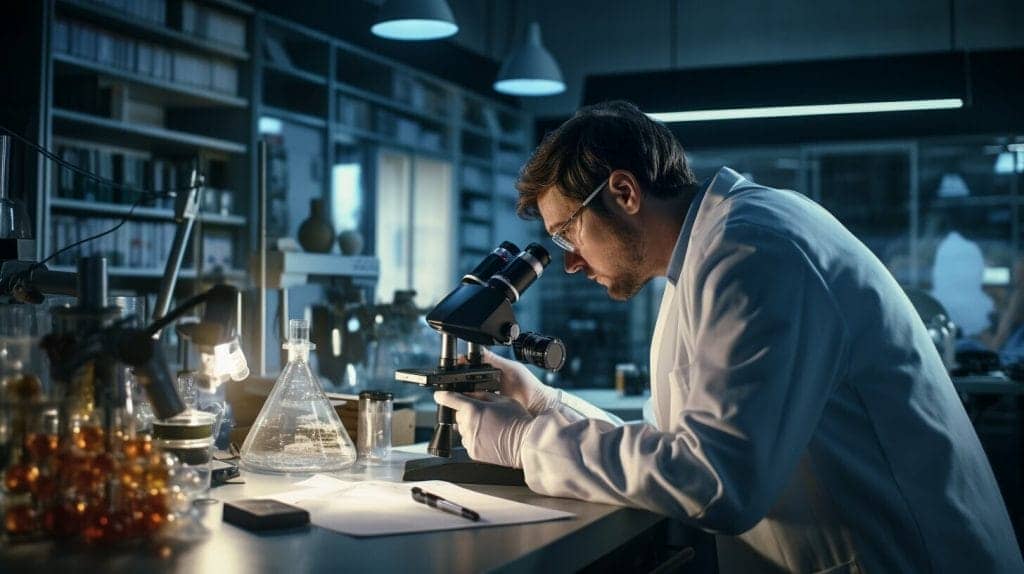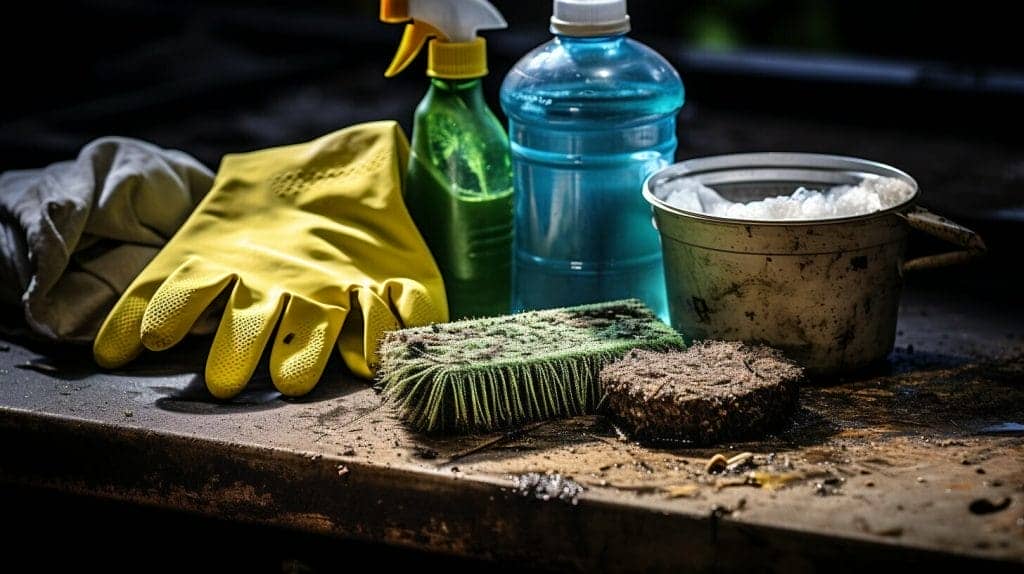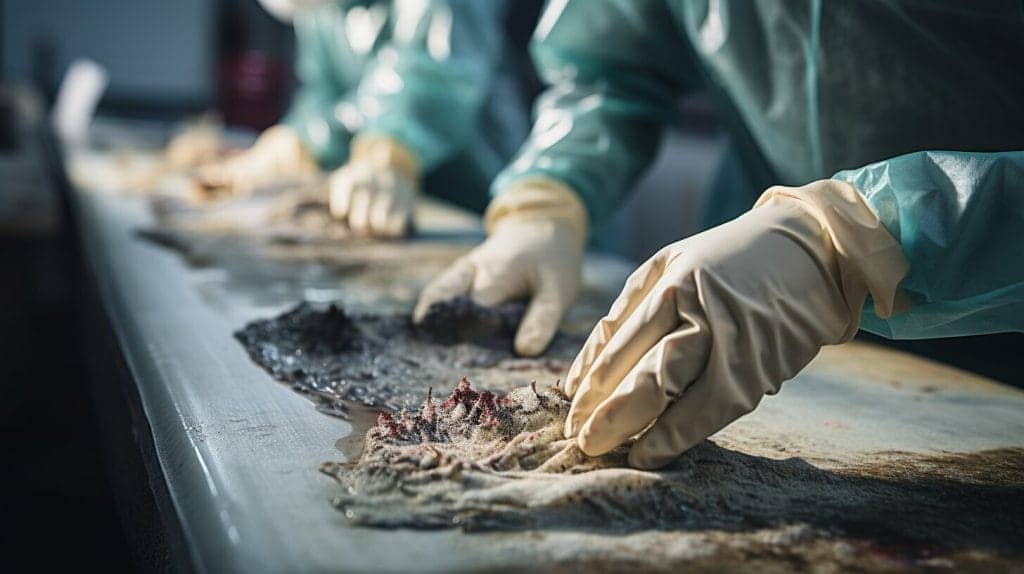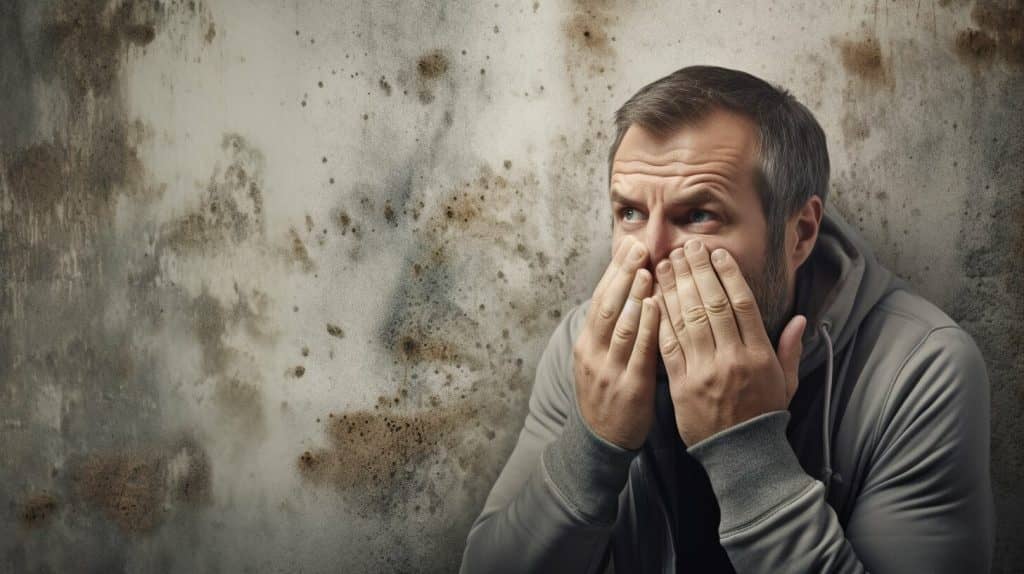Mold exposure can lead to severe health complications, including respiratory problems, fatigue, and headaches, among others. Without proper care and support, these symptoms can persist and affect daily life. Fortunately, mold poisoning patient care centers offer comprehensive treatment and support for individuals affected by mold toxicity.
These centers provide expert guidance and care through a range of specialized services, including mold detox programs, exposure rehabilitation, and mycotoxin detoxification clinics. By seeking professional help, individuals can take proactive steps towards a healthier recovery.
Key Takeaways
- Mold poisoning patient care centers offer comprehensive treatment and support for individuals affected by mold toxicity.
- These centers provide specialized services, including mold detox programs, exposure rehabilitation, and mycotoxin detoxification clinics.
- Seeking professional help can help individuals take proactive steps towards a healthier recovery.
Understanding Mold Poisoning and its Health Implications
Mold poisoning, also known as mold illness or mycotoxicosis, is a condition caused by exposure to toxic mold spores. It can affect individuals of all ages and can have a wide range of health implications. Symptoms of mold poisoning can include fatigue, headaches, respiratory issues, skin irritation, and cognitive difficulties.
The causes of mold poisoning vary, but it is often the result of exposure to water-damaged buildings or areas with high humidity levels. Mold toxins, known as mycotoxins, can enter the bloodstream through inhalation, ingestion, or skin absorption, causing a range of health problems.
Given the complex nature of mold poisoning, specialized mold illness treatment facilities, toxicity clinics, exposure rehabilitation centers, sickness recovery centers, and mycotoxin detoxification clinics are needed to provide comprehensive care to individuals affected by mold toxicity. These centers can address the unique challenges posed by mold-related health issues.
Causes and Symptoms of Mold Poisoning
The primary cause of mold poisoning is exposure to toxic mold spores. Mycotoxins can enter the body through inhalation, ingestion, or skin absorption. Symptoms of mold poisoning can range from mild to severe and can adversely impact an individual’s quality of life and well-being.
Common symptoms of mold poisoning include:
- Fatigue
- Cognitive difficulties
- Respiratory issues
- Headaches
- Eye irritation
- Skin irritation
- Joint pain and stiffness
- Depression and anxiety
- Memory loss
If left untreated, mold poisoning can have serious health implications, including damage to the nervous system, immune system, and other vital organs.
“Mold illness is the great masquerader of our time, hiding behind symptoms like fatigue, headaches, and brain fog. It’s essential to seek specialized care from mold illness treatment facilities to address the underlying causes of these symptoms.”
The Role of Patient Care Centers in Mold Poisoning Recovery
Mold poisoning patient care centers play a vital role in the recovery process for individuals affected by mold toxicity. These centers offer comprehensive treatment and support to address all aspects of the health complications associated with mold exposure.
With their specialized expertise in mold-related health issues, patient care centers are equipped to handle the unique challenges posed by mold poisoning. They provide personalized care tailored to the individual’s specific needs, including medical treatment, therapy, and various supportive services.
The supportive services offered at mold poisoning patient care centers are an essential aspect of the recovery process. Emotional and psychological support, as well as education and resources, are provided to guide individuals through their mold poisoning recovery journey.
Oasis Medical Institute: Holistic Treatment Center for Mold Toxicity
Oasis Medical Institute, located in Tijuana, Mexico, is a renowned healthcare facility that specializes in treating patients with mold toxicity. As one of the few holistic Mold Toxicity treatment programs available, it offers an integrative approach to medicine that combines conventional and natural therapies to provide comprehensive care to its patients.
| Treatment Approaches: | Oasis Medical Institute’s comprehensive treatment approach includes: |
|---|---|
|
The team at Oasis Medical Institute is led by Dr. Francisco Contreras MD, a renowned oncologist and cancer researcher who has extensive experience in treating patients with chronic illnesses. His expertise in integrative medicine allows him to tailor treatment plans to each patient’s unique needs.
Patients who come to Oasis Medical Institute can expect to receive compassionate care from a team of highly skilled healthcare professionals. The center’s commitment to holistic healing ensures that patients are given the best possible chance of recovering from mold toxicity, both physically and emotionally.
Oasis Medical Institute: Holistic Treatment Center for Mold Toxicity
“The care I received at Oasis Medical Institute was top-notch. I had been struggling with mold toxicity for years, and I was at my wit’s end. But the team at Oasis gave me hope and helped me regain my health. I am forever grateful for their expertise and kindness.” – Jane, former patient
Comprehensive Treatment Approaches at Mold Poisoning Patient Care Centers
Mold poisoning patient care centers offer comprehensive treatment approaches to address the underlying causes and symptoms of mold toxicity. These approaches are designed to provide holistic, personalized care to individuals affected by mold-related health issues.
One of the most critical aspects of this care is mold detox programs. These programs use a combination of dietary changes, nutritional supplements, and other therapies to rid the body of harmful mycotoxins and other contaminants associated with mold exposure. The goal of these programs is to help patients recover their health and reduce the risk of future mold-related health problems.
In addition to mold detox programs, patient care centers for mold poisoning offer a range of other therapies and treatments. These may include:
| Treatment | Description |
|---|---|
| HEPA air filtration | High-efficiency particulate air (HEPA) filters can remove airborne mold spores and other contaminants from the air, improving indoor air quality and reducing the risk of continued exposure. |
| Infrared sauna therapy | Therapeutic use of infrared light can help eliminate toxins from the body and promote overall well-being. |
| IV therapy | Administration of vitamins, minerals, and other nutrients through an intravenous (IV) drip can help improve immune function and support the body’s natural detoxification processes. |
| Cognitive-behavioral therapy | This type of therapy aims to help patients recognize and change negative patterns of thought and behavior that may be contributing to their health problems. |
The overall goal of these comprehensive treatment approaches is to provide a personalized plan of care that addresses the unique needs of each patient. By combining a range of therapies and treatments, patient care centers for mold poisoning can help individuals achieve optimal health and well-being.
Supportive Services for Mold Poisoning Recovery
Mold poisoning patient care centers offer a wide range of supportive services to aid individuals in their recovery journey. The comprehensive approach to treatment provided by these centers takes into account the unique challenges posed by mold-related health issues.
One critical aspect of supportive services is emotional and psychological support. Individuals affected by mold toxicity often experience physical and mental stress, anxiety, and depression. Patient care centers provide counseling and therapy services to help patients cope with these negative emotions effectively.
Educational resources are another crucial component of supportive services. Patients receive information on mold exposure, prevention, and management. These resources empower individuals to take proactive steps towards a healthier lifestyle and prevent future exposure to mold toxins.
Mold illness support centers provide access to support groups where individuals can connect with others who have faced similar challenges. These group sessions foster a sense of community and promote positive social interactions, which can be beneficial to the recovery process.
The supportive services provided by mold poisoning patient care centers play a vital role in an individual’s recovery journey. They offer a holistic approach to treatment, addressing patients’ physical, emotional, and psychological needs. These services promote positive and healthy lifestyle changes that lead to long-term recovery.
Finding the Right Mold Poisoning Patient Care Center for You
Choosing the right mold poisoning patient care center is crucial for achieving a successful recovery. When searching for a center, there are several factors to consider:
- Location: Look for a center that is easily accessible and close to home, reducing the burden of travel and facilitating family involvement.
- Expertise: Seek out centers that specialize in mold-related health issues and have experienced healthcare professionals trained in mold poisoning treatment.
- Specialized Services: Consider the availability of specialized services, such as mold exposure rehabilitation or mycotoxin detoxification programs, to ensure comprehensive treatment.
- Facility Amenities: Check the center’s facilities and amenities to ensure they meet personal preferences and needs. This can include private rooms, recreational activities, and alternative therapies like acupuncture or massage.
When researching mold poisoning patient care centers, take the time to review their websites, read patient reviews, and speak with healthcare professionals to gain a better understanding of their services and approach to treatment. Remember, finding the right center is the first step towards a healthy recovery.
Benefits of Mold Poisoning Patient Care Centers
Mold poisoning patient care centers offer comprehensive treatment and support for individuals affected by mold toxicity. Seeking professional care and guidance is essential for a healthy recovery, and these centers provide expertise in addressing the unique challenges posed by mold-related health issues.
Healthcare professionals in mold-related health clinics have the knowledge and expertise to address the underlying causes and symptoms of mold poisoning. They offer comprehensive treatment approaches, including mold detox programs, to aid in recovery. Additionally, the supportive services offered by mold poisoning patient care centers provide emotional and psychological support, education, and resources to help individuals on their recovery journey.
By seeking treatment at mold poisoning patient care centers, individuals can benefit from the positive outcomes and experiences shared by others who have received treatment and support. The expertise of healthcare professionals, combined with the comprehensive approach offered by these centers, can have a significant and positive impact on an individual’s recovery.
Furthermore, ongoing research and advancements in mold poisoning treatment are driving innovation and improving outcomes for individuals affected by mold toxicity. Mold illness treatment facilities play a significant role both nationally and internationally in fostering global cooperation for improved patient care.
It is important to note that insurance coverage and financial considerations should be taken into account when seeking mold poisoning treatment at patient care centers. However, potential financial assistance options are available to help navigate these concerns.
Testimonials and Success Stories from Mold Poisoning Patient Care Centers
Individuals who have received treatment and support from mold poisoning patient care centers have reported positive outcomes and experiences. Testimonials and success stories from patients provide insight into the effectiveness and value of these centers in addressing mold-related health issues.
“After struggling with chronic fatigue and joint pain for years, I was diagnosed with mold toxicity. Seeking treatment at a mold poisoning patient care center was the best decision I ever made. The comprehensive approach and guidance provided by the healthcare professionals helped me overcome my symptoms and regain my health.”
-Rachel, 36
“As a teacher, I spent most of my days in a mold-infested classroom. After months of exposure, I began experiencing severe respiratory symptoms and headaches. The mold poisoning patient care center not only provided medical treatment but also helped me find a new job in a healthy environment. I am forever grateful for their support.”
-Mark, 42
These testimonials and success stories emphasize the importance of seeking professional care and guidance when dealing with mold-related health issues. Mold poisoning patient care centers offer a comprehensive approach to treatment and support, providing individuals with the resources and expertise they need to overcome their symptoms and regain their health.
Insurance Coverage and Financial Considerations for Mold Poisoning Treatment
When seeking treatment for mold poisoning, it is important to consider the financial implications of receiving care at patient care centers. Many insurance policies do cover mold-related health issues, but it is important to review individual policies carefully to ensure coverage.
| Insurance Coverage | Factors to Consider |
|---|---|
| Some insurance policies may cover treatment for mold poisoning. | It is important to review individual policies, considering factors such as deductibles, co-pays, and out-of-pocket maximums. |
| Flexible Spending Accounts (FSAs) and Health Savings Accounts (HSAs) can be used towards mold poisoning treatment. | Check with individual account providers to confirm coverage and reimbursement options. |
| In cases where insurance coverage does not apply, payment plans or financial assistance may be available. | It is important to inquire about financial assistance and payment plan options directly with the patient care center. |
Individuals seeking treatment for mold poisoning should not let financial concerns discourage them from seeking appropriate care. Many patient care centers are willing to work with patients to find a financial solution that suits their needs.
Research and Advancements in Mold Poisoning Treatment
Research and advancements in mold poisoning treatment are essential in improving outcomes for individuals affected by mold toxicity. Mold illness treatment facilities play a crucial role in driving innovation and contributing to ongoing research in the field.
Recent developments include the identification of new mycotoxins, which has allowed for a more detailed understanding of the mechanisms behind mold toxicity. Additionally, the use of advanced diagnostic tests, such as urine mycotoxin testing and genetic testing, has enabled more accurate diagnoses and personalized treatment plans.
Researchers are also exploring the use of various treatments, including antioxidants, anti-inflammatory agents, and immunomodulators, to combat the harmful effects of mold toxicity. Furthermore, studies on the potential benefits of alternative therapies, such as acupuncture and yoga, are ongoing.
The collaboration between mold poisoning patient care centers and international researchers has been crucial in advancing knowledge and improving patient care. Through shared expertise and resources, these facilities are driving progress in the treatment of mold-related health issues.
International Collaboration for Mold Poisoning Research and Treatment
The field of mold poisoning research and treatment is a global effort, with healthcare professionals, researchers, and organizations working together to improve patient care and outcomes. The collaborative nature of this field has made significant strides in addressing the unique challenges posed by mold-related illnesses.
International collaboration has been essential in advancing research and treatment options for mold poisoning. By sharing knowledge and expertise, professionals from different regions and countries can work together to develop new and innovative approaches to patient care. This collaboration has led to significant advancements in the understanding of mold-related illnesses and the development of specialized treatment protocols.
Various mold illness treatment facilities and patient care centers around the world play a crucial role in fostering international collaboration in mold poisoning research and treatment. These centers provide a platform for medical professionals to collaborate across borders, sharing experiences and expertise to improve patient outcomes.
From research studies to clinical trials, international collaboration has contributed to numerous breakthroughs in mold poisoning treatment. These advancements have led to better diagnosis, treatment options, and outcomes for individuals affected by mold toxicity.
Through continued international collaboration, mold poisoning treatment is expected to further improve in the coming years. As a result, individuals affected by mold toxicity can feel confident that they are receiving the best possible care, regardless of location or healthcare system.
Conclusion
In conclusion, mold poisoning patient care centers play a vital role in providing comprehensive treatment and support for individuals affected by mold toxicity. These centers offer specialized services such as mold detox programs and emotional support to aid in the recovery process. The expertise of healthcare professionals in mold-related health clinics can have a significant positive impact on an individual’s recovery journey.
Finding the right mold poisoning patient care center requires consideration of factors such as location, expertise, and specialized services like mold exposure rehabilitation. Insurance coverage and financial considerations may also need to be taken into account.
Ongoing research and advancements in mold poisoning treatment, along with international collaboration, continue to drive innovation and improve outcomes for individuals affected by mold toxicity.
Overall, seeking professional care and guidance from mold poisoning patient care centers is essential for a healthy and successful recovery. By taking proactive steps towards healing, individuals can regain control of their health and well-being.
FAQ
Q: What are mold poisoning patient care centers?
A: Mold poisoning patient care centers are specialized facilities that provide comprehensive treatment and support for individuals affected by mold toxicity. These centers offer expertise in addressing the specific needs of individuals with mold-related health issues.
Q: What is the role of patient care centers in mold poisoning recovery?
A: Patient care centers play a crucial role in the recovery process of individuals affected by mold poisoning. They provide comprehensive support and guidance, addressing both the physical and emotional aspects of recovery.
Q: What services are offered by Oasis Medical Institute in Tijuana, Mexico?
A: Oasis Medical Institute in Tijuana, Mexico offers a holistic treatment program for Mold Toxicity. Led by Dr. Francisco Contreras MD, the center takes an integrative approach to medicine, providing unique services for mold-related health issues.
Q: What are the treatment approaches at mold poisoning patient care centers?
A: Mold poisoning patient care centers utilize comprehensive treatment approaches, including mold detox programs and other therapies. These approaches aim to address the underlying causes and symptoms of mold poisoning for a healthy recovery.
Q: What supportive services are available for mold poisoning recovery?
A: Mold poisoning patient care centers offer a range of supportive services, including emotional and psychological support, education, and resources. These services aid individuals in their mold poisoning recovery journey.
Q: How can I find the right mold poisoning patient care center for me?
A: Finding the right mold poisoning patient care center involves considering factors such as location, expertise, and specialized services like mold exposure rehabilitation. It is essential to research and evaluate centers to ensure a good fit for individual needs.
Q: What are the benefits of mold poisoning patient care centers?
A: Seeking treatment at mold poisoning patient care centers provides access to healthcare professionals with expertise in mold-related health. These centers can have a positive impact on an individual’s recovery and overall well-being.
Q: Are there any testimonials and success stories from mold poisoning patient care centers?
A: Yes, mold poisoning patient care centers often have testimonials and success stories from individuals who have received treatment and support. These stories highlight the effectiveness and value of these centers in mold poisoning recovery.
Q: How does insurance coverage and financial considerations work for mold poisoning treatment?
A: Insurance coverage and financial considerations for mold poisoning treatment at patient care centers can vary. It is advisable to navigate insurance policies and explore potential financial assistance options to understand costs and coverage.
Q: What research and advancements are being made in mold poisoning treatment?
A: Ongoing research and advancements in mold poisoning treatment are driving innovation and improving outcomes. Mold illness treatment facilities play a significant role in advancing the field and enhancing patient care.
Q: How does international collaboration contribute to mold poisoning research and treatment?
A: International collaboration in mold poisoning research and treatment fosters global cooperation and knowledge sharing. Mold illness treatment facilities and patient care centers contribute to this collaboration, working towards improved patient care worldwide.
Dr. Francisco Contreras, MD is a renowned integrative medical physician with over 20 years of dedicated experience in the field of integrative medicine. As the Medical Director of the Oasis of Hope Hospital in Tijuana, Mexico, he has pioneered innovative treatments and integrative approaches that have been recognized globally for the treatment of cancer, Lyme Disease, Mold Toxicity, and chronic disease using alternative treatment modalities. Dr. Contreras holds a medical degree from the Autonomous University of Mexico in Toluca, and speciality in surgical oncology from the University of Vienna in Austria.
Under his visionary leadership, the Oasis of Hope Hospital has emerged as a leading institution, renowned for its innovative treatments and patient-centric approach for treating cancer, Lyme Disease, Mold Toxicity, Long-Haul COVID, and chronic disease. The hospital, under Dr. Contreras's guidance, has successfully treated thousands of patients, many of whom traveled from different parts of the world, seeking the unique and compassionate care the institution offers.
Dr. Contreras has contributed to numerous research papers, articles, and medical journals, solidifying his expertise in the realm of integrative medicine. His commitment to patient care and evidence-based treatments has earned him a reputation for trustworthiness and excellence. Dr. Contreras is frequently invited to speak at international conferences and has been featured on CNN, WMAR2 News, KGUN9 News, Tyent USA, and various others for his groundbreaking work. His dedication to the medical community and his patients is unwavering, making him a leading authority in the field.
Contreras has authored and co-authored several books concerning integrative therapy, cancer, Lyme Disease and heart disease prevention and chronic illness, including "The Art Science of Undermining Cancer", "The Art & Science of Undermining Cancer: Strategies to Slow, Control, Reverse", "Look Younger, Live Longer: 10 Steps to Reverse Aging and Live a Vibrant Life", "The Coming Cancer Cure Your Guide to effective alternative, conventional and integrative therapies", "Hope Medicine & Healing", "Health in the 21st Century: Will Doctors Survive?", "Healthy Heart: An alternative guide to a healthy heart", “The Hope of Living Cancer Free”, “Hope Of Living Long And Well: 10 Steps to look younger, feel better, live longer” “Fighting Cancer 20 Different Ways”, "50 Critical Cancer Answers: Your Personal Battle Plan for Beating Cancer", "To Beat . . . Or Not to Beat?", and “Dismantling Cancer.”



